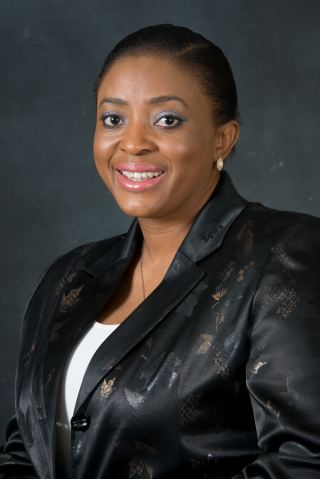Is Doctor Google redefining our professiional Relationships?
By Auguste (Gusti) Coetzer*, Director at Signium Africa www.signium.co.za
Do search engines and other online innovations have the power to redefine professional relationships across industries? The question gathers urgency among corporate achievers looking to take the reins of major companies as an ongoing digital revolution threatens to overturn established business models, even in areas where long-established practice seemed entrenched. Perhaps the biggest single indicator of the impending shake-up is the current rethink of marketing strategies that have traditionally dominated the global pharmaceutical industry.
The old norm was characterised by facetime with doctors, free samples to encourage product trial and perhaps ‘gifting’ to cement relationships between pharma brand and physician. According to industry-watchers in the USA, this model is being overtaken as the medical sector adjusts to new online realities. The pharma industry’s traditional target audience – physicians – confront an online challenge in the shape of ‘Dr Google’ as search engines create instant consumer access to medical information. Online tools called symptom-checkers make it easy for consumers to obtain a DIY diagnosis. Research shows 35% of US adults have gone online to identify a medical condition.
Hypochondria now has a digital equivalent, cyberchondria. As a result, doctors are witnessing huge behavioural shifts, requiring pharmaceutical concerns to do the same. The Journal of the American Medical Association says occasional misdiagnosis by doctors is a concern, though a recent JAMA paper indicated physicians significantly outscore computer algorithms for diagnostic accuracy (84,3% against 51,2% by one measure).
However, flesh-and-blood doctors gave an incorrect diagnosis 15% of the time. Doctors – initially hostile to Dr Google – increasingly look at ways of augmenting their services by the use of digital tools while trying to educate patients to the difference between medical data and medical advice. Some even recommend that patients visit sites that provide credible assistance. Meanwhile, the Google trend and related developments have alerted the pharmaceutical industry to opportunities for a new relationship with medical professionals. Physicians were early adopters of mobile technology, including beepers, pagers,
PDAs, smartphones, tablets and handheld devices for consulting patient records and reference works. As long ago as 2009, one US source put the healthcare sector’s investment in handheld devices and similar technology at $8,2 billion. Clearly, gadget-friendly doctors are open to new avenues for marketing interaction.
The process is already underway. Facebook, LinkedIn and Twitter create space for physicians to organise online communities while US sites like Physicians Interactive and Sermo (for MDs only) reach nearly a million medical professionals. Such platforms enable pharmaceutical companies to engage doctors in new ways. Some pharmaceutical companies are therefore looking to retool their marketing strategies and embrace the cyber-future. Hiring medical communication specialists to engage online with doctors is one route forward.
One marketing consultant says online interventions could help doctors cut information clutter and facilitate links with clinical trials, research papers and opinion-leaders. The retail, hotel and travel industries have already had to adjust to new cyber-realities. A second wave of industries looks set to make similar adjustments. It is little wonder major companies increasingly look for leaders who show acute awareness of digital trends and demonstrate flexibility and a spirit of innovation in the face of change. Being steady and dependable is no longer enough. To lead an organisation into the future, you may have to be radical, even revolutionary, thinking out of the box!
*Auguste (Gusti) Coetzer is a Director of Signium Africa (previously Talent Africa), a leading South African-based executive search and talent management company servicing sub-Saharan Africa. Website: www.signium.co.za Tel: +27 11 771 4800
Issued By: Tale Spin Media & Marketing
Zelda Williams 082 461 0689 | This email address is being protected from spambots. You need JavaScript enabled to view it.
Gillian Schmid 082 960 3233 | This email address is being protected from spambots. You need JavaScript enabled to view it.
The painful burden women achievers never talk about
By Mosima Selekisho, director at Signium Africa (www.signium.co.za)
International Women’s Day (8 March) has a provocative theme this year – Balance for better and encourage action. Presumably, balance is currently poor and action is needed for women to reach their goals. Most would agree with this assessment and IWD commentators will doubtless interrogate ‘the usual suspects’ –cultural norms, patriarchy, resistance to change and the supposed failure of some women leaders to do more to uplift other women.
The cry that top women don’t do enough has become strident in recent years. I am well placed to judge. As a so-called head-hunter for executive talent, I interact with women at the top of large organisations and with a new generation of female go-getters. Women on the way up often complain senior female colleagues do little to help while those who have made it will sometimes admit as much.
Why don’t they? Conversations over several years suggest the reasons go beyond demands on time or disinclination to lend a hand on the basis that ‘nobody helped me so why should I smooth the way for this newcomer?’ Top women find it difficult to help because they themselves are wounded and live with a lot of internal pain. This is never admitted. One characteristic of top achievers is that they put on a good front. They always seem in control. This mask never slips. Perhaps it should. The pain is inevitable. Women give of themselves and live every day with issues affecting husbands and partners, children and family members.
Thoughtful, giving women carry unseen burdens, especially in Africa. The scrapes of children at school, financial obligations when you’re the biggest earner in an extended family, a spouse’s career difficulties, the problems of kids at university, even police enquiries affecting members of the wider family ... all these issues and more have to be handled day by day. The woman who supposedly has it all is expected to solve it all. That can mean anything from helping a sibling quit substance abuse to paying the legal fees of a partner facing litigation. What can women do about it? First, look in the mirror and confess the professional front has become a mask. Admit you have been carrying internal pain for years.
You might even be embittered by the thoughtlessness of others and their assumption that you will always cope. This gives you a chance to release the pain. Those who have gone along this road say honest discussion with those close to you gives the best chance of a pain-free future. The blame you cast on those around you will be replaced by deeper understanding while those close to you will realise they can’t simply add to your burden.
You also have a life. Women released from private pain have more time for colleagues. Greater rapport leads to greater willingness to help. Upliftment of others is natural after that. Wounded women find they also achieve career growth. The focus falls on blind-spots and getting the wider team to work toward a single vision. The top achiever begins to see areas in which she can also improve. Carrying burdens makes you strong, but you eventually stoop under the weight and see just one step at a time. You only see the big picture and help others when you put the burden down.
*Mosima Selekisho is a Director of Signium Africa (previously Talent Africa), a leading South African-based executive search and talent management company servicing sub-Saharan Africa.
-- Ends --
Website:www.signium.co.za
Tel: +27 11 771 4800
Issued By: Tale Spin Media & Marketing
Zelda Williams 082 461 0689 or Gillian Schmid 082 960 3233
This email address is being protected from spambots. You need JavaScript enabled to view it. | This email address is being protected from spambots. You need JavaScript enabled to view it.



